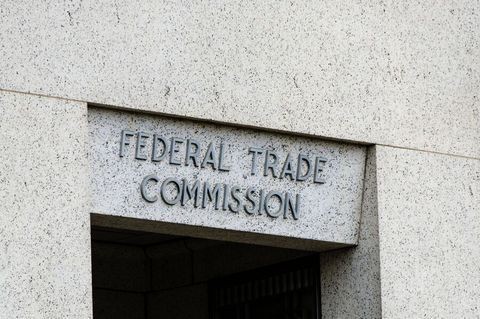OFCCP Final Rules Significantly Expand VEVRAA and Section 503 Obligations
Client Alert | 3 min read | 08.29.13
The day that many government contractors and subcontractors have been anxiously anticipating has finally arrived. On August 27, 2013, the Office of Federal Contract Compliance Programs (OFCCP) issued final rules revising the non-discrimination and affirmative action regulations under Section 503 of the Rehabilitation Act of 1973 (Section 503) and the Vietnam Era Veterans Readjustment Assistance Act of 1974 (VEVRAA). The new rules apply to both service and supply and construction contracts, and apply to both prime contractors and subcontractors (herein referred to collectively as "contractors"). Though the final rules incorporated some changes to the proposed regulations in response to the hundreds of comments OFCCP received from the contracting community, the rules still contain a number of the burdensome obligations that gave – and will continue to give – contractors cause for concern.
Perhaps the most significant aspect of the final rules is the requirement that contractors determine and implement annual benchmarks for the hiring of protected veterans, and establish a national seven percent (7%) utilization goal for individuals with disabilities. Key regulatory changes in the final rules include:
Section 503
- Contractors must establish a 7 percent utilization goal for individuals with disabilities in each job group within their workforces and must conduct annual utilization analyses.
- Contractors must invite all applicants (not just applicants who receive employment offers) to identify as disabled, using specific language prescribed by OFCCP.
- Contractors must invite all their employees to self-identify as disabled every five years, using language prescribed by OFCCP.
- Contractors must collect and "document" data regarding the number of disabled and non-disabled applicants and the number of disabled and non-disabled hires.
- Contractors must annually assess their outreach and recruitment efforts as to individuals with disabilities and document this assessment.
- Contractors must maintain all records pertaining to utilization, applicants, hires, and outreach and recruitment efforts individuals with disabilities for three years.
- Contractors must include specific language regarding the Section 503 obligations in each subcontract rather than just incorporating the clause by reference.
In its proposed rule, the OFCCP had included an obligation to provide, in a signed writing, any denial or refusal to provide a requested reasonable accommodation, stating the reason for the denial. The final rule, however, states only that contractors "should" issue such a writing.
VEVRAA
- Contractors must set annual "hiring benchmarks" for veterans.
- Contractors must invite all applicants (not just applicants who receive employment offers) to self-identify as a veteran.
- Contractors must collect and "document" data regarding the number of veteran and non-veteran applicants and the number of veteran and non-veteran hires.
- Contractors must specifically identify on all job postings that they are an equal opportunity employer of protected veterans and must include "VEVRAA Federal Contractor" on all job listings that they are required to post with local employment services offices.
- Contractors must annually assess their outreach and recruitment efforts as to veterans and document this assessment.
- Contractors must maintain all records pertaining to hiring benchmarks, applicants, hires, and outreach and recruitment efforts for veterans for three years.
- Contractors must include specific language regarding the VEVRAA obligations in each subcontract rather than just incorporating the clause by reference.
The final rules significantly change every contractor's obligations with respect to veterans and individuals with disabilities. With the effective date for the new regulations only six months away, contractors should act now to bring their affirmative action programs into compliance.
We will provide more detailed guidance on these regulatory changes and best practices for compliance in the coming weeks, and we encourage you to contact us to discuss how these major changes will impact your organization.
Insights
Client Alert | 3 min read | 05.06.24
FTC Imposes $3.17 Million Civil Penalty for Violation of Prior Made in USA Order
Last week, based on a referral from the Federal Trade Commission (“FTC”), the Department of Justice (“DOJ”) filed a complaint against Williams-Sonoma alleging that the company violated a previous Federal Trade Commission decision and order dated July 13, 2020 (the “2020 Order”) pursuant to which Williams-Sonoma was prohibited from making unsubstantiated U.S. origin claims. The complaint alleged that, following entry of the 2020 Order, Williams-Sonoma made “numerous false and unsubstantiated representations that their home goods or other products are ‘Made in USA’ or otherwise of U.S. origin, when, in fact, they are wholly imported or contain significant imported components.”
Client Alert | 14 min read | 05.03.24
Client Alert | 3 min read | 05.03.24
EEOC’s New “Enforcement Guidance on Harassment in the Workplace” Hits Hot-Button Issues
Client Alert | 11 min read | 05.03.24
FDA Moves Forward on Laboratory Developed Tests while Stakeholders and Congress Weigh Next Steps





